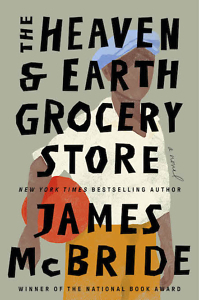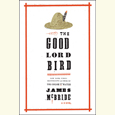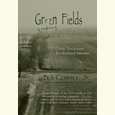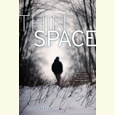On This Hill
A neighborhood unites to protect a child in James McBride’s The Heaven & Earth Grocery Store
FROM THE CHAPTER 16 ARCHIVE: This review originally appeared on August 8, 2023.
***
James McBride begins his latest novel, The Heaven & Earth Grocery Store, in 1972 Pottstown, Pennsylvania, with the discovery of a decades-old murder, a mysterious disappearance, and a hurricane that wipes away the multi-ethnic neighborhood of Chicken Hill and, along with it, all evidence of the unsolved crime.

“And them cops and big-time muckity mucks that was running behind them Jews for the body they found in that old well, they can’t find a spec against ‘em now,” McBride writes, “for God took the whole business — the water well, the reservoir, the dairy, the skeleton, and every itty bitty thing they could’a used against them Jews — and washed it clear into the Manatawny Creek.”
McBride — who, in addition to being a bestselling and award-winning author, is an accomplished musician and wrote a biography of James Brown titled Kill ‘Em and Leave — knows how to kick off a show.
The Heaven & Earth Grocery Store sustains that initial momentum across an endearing, eloquent, exuberant, frequently humorous, and consistently engaging 381 pages. The novel is at once a thriller, a cultural history, a love story, and an ensemble comedy with a Dickensian cast of characters, all made unforgettable by James McBride’s swinging prose and uncanny knack for blending social realism and nimble storytelling.
The main action of the novel takes place in the mid-1920s, but its themes resonate deep into the past and future as McBride brings to life the enclave known as Chicken Hill, which in the 1920s was populated primarily by African Americans and Jewish immigrants. At the center of the cast are Moshe and Chona Ludlow, owners and operators of two integrated theaters and the titular grocery store, and Nate and Addie Timblin, de facto patriarch and matriarch of the Black community on Chicken Hill. Nate works for Moshe; Addie becomes Chona’s caretaker and closest friend when she falls ill. The bond between the two couples extends into their respective communities, particularly after Moshe begins booking Black entertainers at his theaters. The suspicion, resentment, and unsubtle racism of white Pottstown surfaces in the form of Doc Roberts, the town’s leading physician. He’s also a Klansman, and he maintains an obsession with Chona dating back to their high school days.
 The conflict escalates with the appearance of Nate’s nephew, Dodo, a 12-year-old orphan who lost his hearing and partially his speech to an accidental gas stove explosion. The state wants to send Dodo to an infamous home for disabled children, where he doesn’t belong and where he’ll likely be subject to abuse. Nate enlists Moshe and Chona’s help in hiding Dodo from the authorities. Spurred by his racism and his grudge against Moshe and Chona, Doc Roberts involves himself in the search for the “missing” boy. As the conflict escalates, the entire community of Chicken Hill rallies to support the Ludlows and Timblins, at considerable risk.
The conflict escalates with the appearance of Nate’s nephew, Dodo, a 12-year-old orphan who lost his hearing and partially his speech to an accidental gas stove explosion. The state wants to send Dodo to an infamous home for disabled children, where he doesn’t belong and where he’ll likely be subject to abuse. Nate enlists Moshe and Chona’s help in hiding Dodo from the authorities. Spurred by his racism and his grudge against Moshe and Chona, Doc Roberts involves himself in the search for the “missing” boy. As the conflict escalates, the entire community of Chicken Hill rallies to support the Ludlows and Timblins, at considerable risk.
The heart of The Heaven & Earth Grocery Store belongs to Chona Ludlow, a great beauty despite a leg deformed by polio, and a woman ahead of her time:
She read everything as a child: comics, detective books, dime novels; and by the time she became a young wife, she’d evolved into reading about socialism and unions. She subscribed to Jewish newspapers, publications in Hebrew, and books on Jewish life, some from Europe. The readings gave her wild ideas about art, music, and worldly matters. She knew more Hebrew than any Jewish woman in town, many of whom had little more than a rudimentary knowledge of the language. She could recite the Talmud better than most of the men in shul. Instead of sitting with the women in the balcony, she insisted on davening downstairs with the men, claiming her bad foot kept her from climbing stairs.
One cannot help but feel in Chona the presence of McBride’s own mother, Ruth McBride Jordan (born Ruchel Zylska), whose remarkable life forms the backbone of McBride’s celebrated memoir The Color of Water. McBride’s history as the Black child of a Jewish mother no doubt informs both his extensive knowledge of early 20th-century Jewish American culture and his keen sense of the sympathy between two communities beset by bigotry and persecution. In The Heaven & Earth Grocery Store, that sympathy builds toward a powerfully redemptive conclusion, inspired by the courage and fierce love of its women and the loyalty and tenderness of their men.
It also happens to be a terrifically entertaining read: consistently lively, perfectly paced, beautifully articulated in prose which summons to mind the “gorgeous, stomping, low-down, rip-roaring, heart-racing jazz” performed by Chick Webb’s band in Moshe Ludlow’s All-American Dance Hall and Theater. The Heaven & Earth Grocery Store is a storytelling symphony and another clear triumph from perhaps the finest American maestro working today.

Ed Tarkington is the author of two novels: The Fortunate Ones (2021) and Only Love Can Break Your Heart (2016). He lives in Nashville.


